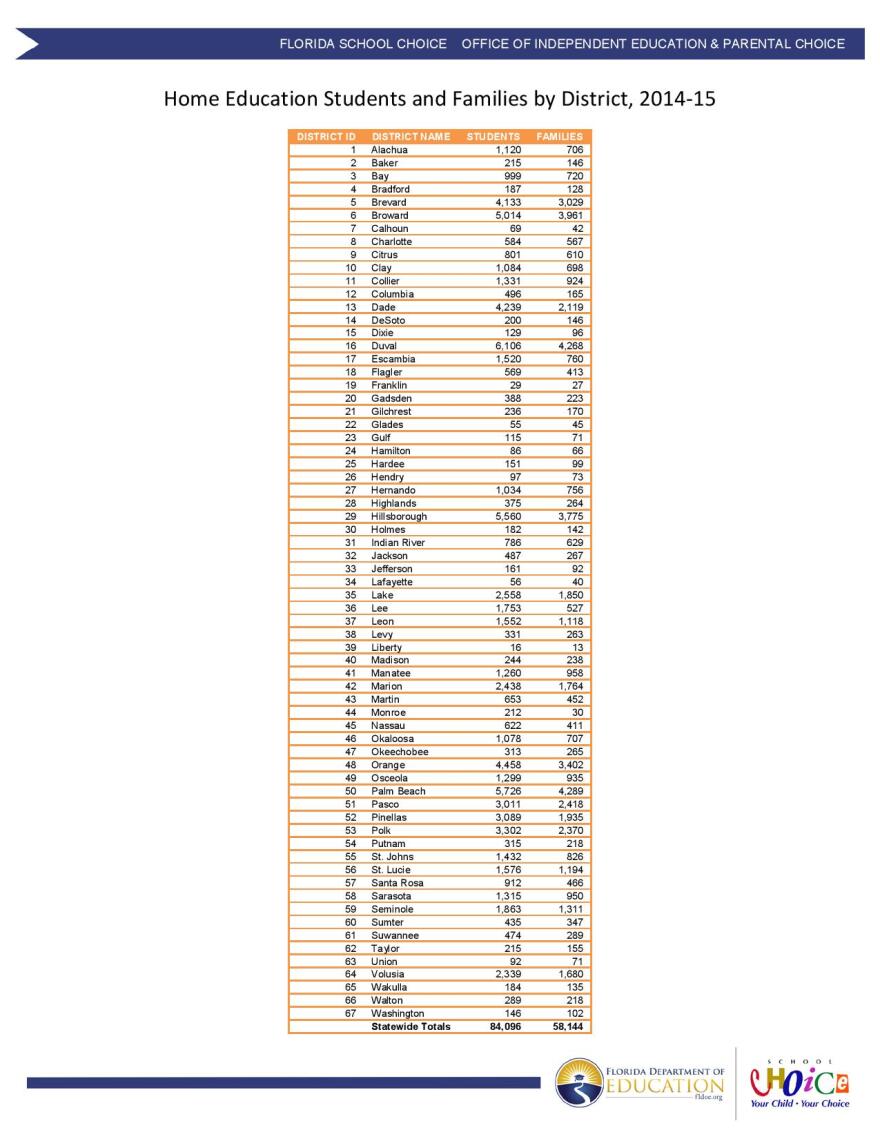Homeschooling entered the mainstream in the 1980s and was led largely by white evangelical Christians. Today, the U.S Department of Education says approximately 1.7 million students in the U.S are homeschooled—more than 84,000 of them in Florida.
The fastest growing demographic choosing to leave traditional schools behind are African-Americans.
Art projects are scattered on the floor of Lorielle Hollaway's sunny apartment in downtown St. Petersburg and an entire living room wall is lined with children's books. Seated at a long table, 6-year-old Nadia and her sister Ava, 4, listen attentively as their mother teaches them about vowel sounds.
There are a lot of reasons why Hollaway is homeschooling her girls. Some echo sentiments of the homeschooling movement in general. She wants to give then individualized attention and foster their interests, like Nadia's penchant for gardening and Ava’s love for art.
But there's more behind Hollaway's decision to seek an alternative to traditional education. A month before Nadia was to enter first grade, the Tampa Bay Times published a scathing five-part series on failing schools in Pinellas County.
Hollaway said the report felt like validation she was doing the right thing.
According to new federal education data, black and Latino students have less access to high level math and science courses in the nation's public schools and are more likely to attend schools with less experienced teachers. More than one third of bullied adolescents say race was an issue.
"I feel that being a black child in America, they may feel inferior,” Hollaway said. "I don't really care for them to feel superior but I want them to feel equal to all people."
Cheryl Fields-Smith is a professor of elementary education at the University of Georgia and has written about black family engagement in learning. She said black home education can combat institutionalized racism.
"Black children, males in particular, are more harshly disciplined,” she said. “The most recent report that came out demonstrates that this happens as early as Pre-K, so how long should parents accept their children being labeled troublemakers?"

For Paula Penn-Nabrit, an African-American author of a book on black homeschooling, “Morning by Morning,” the issue is personal. In the 90s, she and her husband decided to homeschool their three sons after racial incidents at public and private schools.
That experience, and a lack of black teachers, made them worry about their son's self-esteem. Nabrit points to Department of Education data that less than 7 percent of the nation's teachers are African American.
"What might we deduce from that in the context of black children,” Nabrit said. “For a lot of black children, particularly for a lot of black boys, it’s possible for them to go from grades K through 12 without ever having a teacher who was an adult version of themselves."
Back in St. Petersburg, homeschooling mom Lorielle Hollaway agrees, and adds that she wants to model a positive image of race. In a school setting, she worries that even if her girls may not get picked on, other kids of color could be.
I don’t want that for Nadia and Ava,” she said.
Instead, these homeschoolers get to see their reflection every day when they look at their teacher - their mom.





